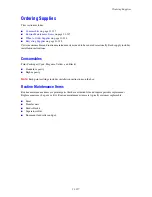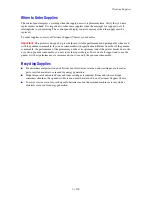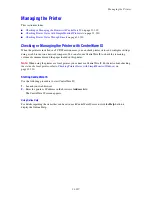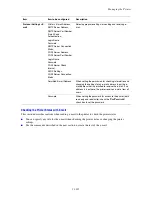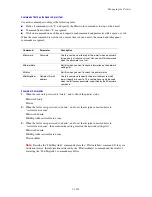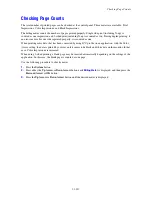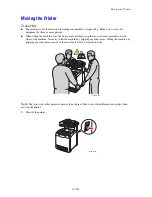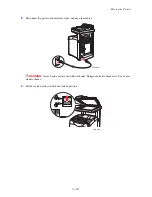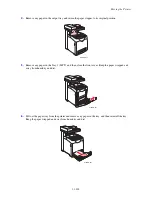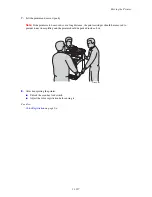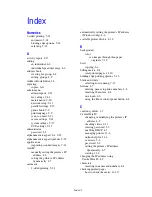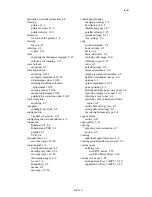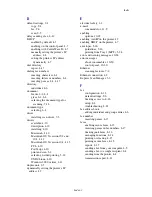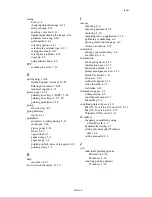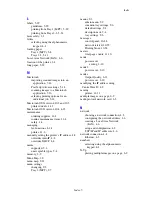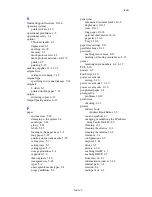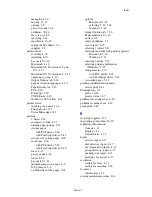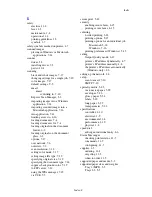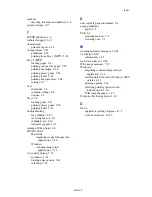
Managing the Printer
11-222
Commands That Can Be Used in E-mail Text
Use each command according to the following rules:
■
Prefix all commands with “#”, and specify the #Password command at the top of the e-mail.
■
Command lines without “#” are ignored.
■
Write one command on each line and separate each command and parameter with a space or a tab.
When the same command is written two or more times in one e-mail, the second and subsequent
commands are ignored.
Example of Commands
1.
When the read only password is “ronly”, and to check the printer status:
#Password ronly
#Status
2.
When the full access password is “admin”, and to set the recipient e-mail address to
“[email protected]”:
#Password admin
#SetMsgAddr [email protected]
3.
When the full access password is “admin”, and to set the recipient e-mail address to
“[email protected]”, then confirm the setting result on the network settings list:
#Password admin
#SetMsgAddr [email protected]
#NetworkInfo
Note:
Describe the “#SetMsgAddr” command before the “#NetworkInfo” command. If they are
written in reverse, the information retrieved by the “#NetworkInfo” command and the result of
executing the “#SetMsgAddr” command may differ.
Command
Parameter
Description
#Password
Password
Use this command at the top of the e-mail when a password
for read only or full access is set. You can omit this command
when the password is not set.
#NetworkInfo
Set this when you want to check information on the network
settings list.
#Status
Set this when you want to check the printer status.
#SetMsgAddr
Recipient E-mail
address
Use this command to specify the e-mail address to which
e-mail reports are sent to. This command can only be used
when the full access password is specified by the #Password
command.










